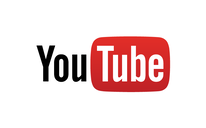Science
Science is all around us! At Charlwood Village Primary School we believe that scientific investigation is one of the most powerful ways to learn; developing curiosity and perseverance as well as challenging what we know about the world. We aim to make science as practical as possible, linking it to real life contexts and giving a meaning to our learning.
Science lessons are open ended and practical in nature, allowing children to use a wide range of resources to lead the learning and make their own discoveries. Lessons aren’t just limited to the classroom... we make use of our field and playground in order to maximise the children's learning experiences. This allows children to develop the key skills of investigation, problem solving and team work; empowering children to question the world around them and become scientific thinkers.
It is our aim that pupils are:
Intent
It is our intention, at Charlwood Village Primary School, to develop in all learners a lifelong curiosity and interest in Science. When planning for the science curriculum, we intend for learners to have the opportunity, wherever possible, to learn through hands on investigations. We encourage learners to take risks in line with a growth mind-set. We study pioneers at the forefront of scientific progress who learnt more from their mistakes than the successes. We want learners to be equipped for life through the experiences we offer, curious about the world around them and with the skills to apply the scientific method successfully. As learners progress through the year groups, they build on their skills in working scientifically and scientific knowledge, as they develop greater independence in planning and carrying out fair and comparative tests to answer a range of scientific questions. Our scheme of work ensures that learners have a varied, progressive and well-mapped-out science curriculum that provides the opportunity for progression across the full breadth of the science national curriculum for KS1 and KS2.
Implement
The acquisition of key scientific knowledge is an integral part of our science lessons. The progression of skills for working scientifically, developed through the year groups, are of key importance within lessons. The progression of these skills is set out in our Science Skills Progression Document. Each lesson has a clear focus. Scientific knowledge and enquiry skills are developed with increasing depth and challenge as learners move through the school. They complete investigations and hands-on activities while gaining the scientific knowledge for each unit. We begin each unit of learning drawing on the learners’ own questions interweave these into the teaching sequence as key assessment questions. These allow us as teachers to assess learners’ levels of understanding at various points in the lesson. They also enable opportunities to recap concepts where necessary. The sequence of lessons helps to embed scientific knowledge and skills, with each lesson building on previous learning. There is also the opportunity to regularly review and evaluate learners’ understanding. Differentiated activities enable learners to have an appropriate level of support and challenge. Teachers have access to high quality resources so that they are equipped with secure scientific subject knowledge, enabling them to deliver high-quality teaching and learning opportunities while making them aware of possible scientific misconceptions.
Impact
We measure progress through a child’s ability to know more, remember more and explain more. The use of key questions ensures opportunities build into lessons ongoing assessment. We assess attainment and progress across the school using milestones documents for each key stage. The impact of our curriculum across the school is an increase in the profile of science. The learning environment across the school is consistent with science technical vocabulary displayed, spoken and used by all learners. Learners feel confident in their science knowledge and enquiry skills and are excited about science, showing that they are actively curious to learn more. They recognise the relevance of what they learn in science lessons to real-life situations and the importance of science in the real world.
Early Years Foundation Stage
Pupils explore and use a variety of media and materials through a combination of child initiated and adult directed activities. They have opportunities to learn to:
By the end of Key Stage 1, pupils should be able to using appropriate scientific language from the national curriculum:
By the end of Key Stage 2, pupils should be able to using appropriate scientific language from the national curriculum:
Science lessons are open ended and practical in nature, allowing children to use a wide range of resources to lead the learning and make their own discoveries. Lessons aren’t just limited to the classroom... we make use of our field and playground in order to maximise the children's learning experiences. This allows children to develop the key skills of investigation, problem solving and team work; empowering children to question the world around them and become scientific thinkers.
It is our aim that pupils are:
- Confident: Our science provision encourages students to explore and experiment, building their confidence in their ability to investigate and discover the world around them.
- Valued: We believe that science is a crucial subject that contributes to the development of critical thinking, problem-solving, and creativity. Therefore, we value science as an essential part of our curriculum.
- Prepared: Our science curriculum prepares students to understand and engage with scientific concepts and practices that underpin many aspects of modern life. By developing their scientific literacy, we aim to equip them with the knowledge and skills to make informed decisions.
- Successful: Through our science provision, we aim to inspire students to be curious and excited about the world around them. By nurturing their passion for science, we support them to become successful learners who are prepared for future scientific challenges.
Intent
It is our intention, at Charlwood Village Primary School, to develop in all learners a lifelong curiosity and interest in Science. When planning for the science curriculum, we intend for learners to have the opportunity, wherever possible, to learn through hands on investigations. We encourage learners to take risks in line with a growth mind-set. We study pioneers at the forefront of scientific progress who learnt more from their mistakes than the successes. We want learners to be equipped for life through the experiences we offer, curious about the world around them and with the skills to apply the scientific method successfully. As learners progress through the year groups, they build on their skills in working scientifically and scientific knowledge, as they develop greater independence in planning and carrying out fair and comparative tests to answer a range of scientific questions. Our scheme of work ensures that learners have a varied, progressive and well-mapped-out science curriculum that provides the opportunity for progression across the full breadth of the science national curriculum for KS1 and KS2.
Implement
The acquisition of key scientific knowledge is an integral part of our science lessons. The progression of skills for working scientifically, developed through the year groups, are of key importance within lessons. The progression of these skills is set out in our Science Skills Progression Document. Each lesson has a clear focus. Scientific knowledge and enquiry skills are developed with increasing depth and challenge as learners move through the school. They complete investigations and hands-on activities while gaining the scientific knowledge for each unit. We begin each unit of learning drawing on the learners’ own questions interweave these into the teaching sequence as key assessment questions. These allow us as teachers to assess learners’ levels of understanding at various points in the lesson. They also enable opportunities to recap concepts where necessary. The sequence of lessons helps to embed scientific knowledge and skills, with each lesson building on previous learning. There is also the opportunity to regularly review and evaluate learners’ understanding. Differentiated activities enable learners to have an appropriate level of support and challenge. Teachers have access to high quality resources so that they are equipped with secure scientific subject knowledge, enabling them to deliver high-quality teaching and learning opportunities while making them aware of possible scientific misconceptions.
Impact
We measure progress through a child’s ability to know more, remember more and explain more. The use of key questions ensures opportunities build into lessons ongoing assessment. We assess attainment and progress across the school using milestones documents for each key stage. The impact of our curriculum across the school is an increase in the profile of science. The learning environment across the school is consistent with science technical vocabulary displayed, spoken and used by all learners. Learners feel confident in their science knowledge and enquiry skills and are excited about science, showing that they are actively curious to learn more. They recognise the relevance of what they learn in science lessons to real-life situations and the importance of science in the real world.
Early Years Foundation Stage
Pupils explore and use a variety of media and materials through a combination of child initiated and adult directed activities. They have opportunities to learn to:
- To feel confident to answer simple questions about observable properties of objects and people, animals and plants around them.
- To compare objects in their environment and talk about similarities and differences.
- To ask questions about the world around them, and seek to find their own answers.
By the end of Key Stage 1, pupils should be able to using appropriate scientific language from the national curriculum:
- Ask their own questions about what they notice
- Use different types of scientific enquiry to gather and record data, using simple equipment where appropriate, to answer questions:
- observing changes over time
- noticing patterns
- grouping and classifying things
- carrying out simple comparative tests
- finding things out using secondary sources of information
- Communicate their ideas, what they do and what they find out in a variety of ways
By the end of Key Stage 2, pupils should be able to using appropriate scientific language from the national curriculum:
- Describe and evaluate their own and others’ scientific ideas related to topics in the national curriculum (including ideas that have changed over time), using evidence from a range of sources
- Ask their own questions about the scientific phenomena that they are studying, and select the most appropriate ways to answer these questions, recognising and controlling variables where necessary (i.e. observing changes over different periods of time, noticing patterns, grouping and classifying things, carrying out comparative and fair tests, and finding things out using a wide range of secondary sources)
- Use a range of scientific equipment to take accurate and precise measurements or readings, with repeat readings where appropriate
- Record data and results using scientific diagrams and labels, classification keys, tables, scatter graphs, bar and line graphs
- Draw conclusions, explain and evaluate their methods and findings, communicating these in a variety of ways
- Raise further questions that could be investigated, based on their data and observations.
| Science End of Key Stage 1 Expectations |
| Science End of Key Stage 2 Expectations |
| Working Scientifically Skills Progression KS1 to KS2 |
Some of Ms Luck's favourite Science Websites:
http://www.crickweb.co.uk/ks2science.html
https://www.bbc.co.uk/bitesize/subjects/z2pfb9q
http://www.sciencekids.co.nz/
https://wowscience.co.uk/
http://www.crickweb.co.uk/ks2science.html
https://www.bbc.co.uk/bitesize/subjects/z2pfb9q
http://www.sciencekids.co.nz/
https://wowscience.co.uk/
If you enjoy learning from Youtube check out these channels:
https://www.youtube.com/sickscience
https://www.youtube.com/user/scishow
https://www.youtube.com/user/minutephysics
https://www.youtube.com/user/AsapSCIENCE
https://www.youtube.com/user/WhizKid8881
https://www.youtube.com/sickscience
https://www.youtube.com/user/scishow
https://www.youtube.com/user/minutephysics
https://www.youtube.com/user/AsapSCIENCE
https://www.youtube.com/user/WhizKid8881


